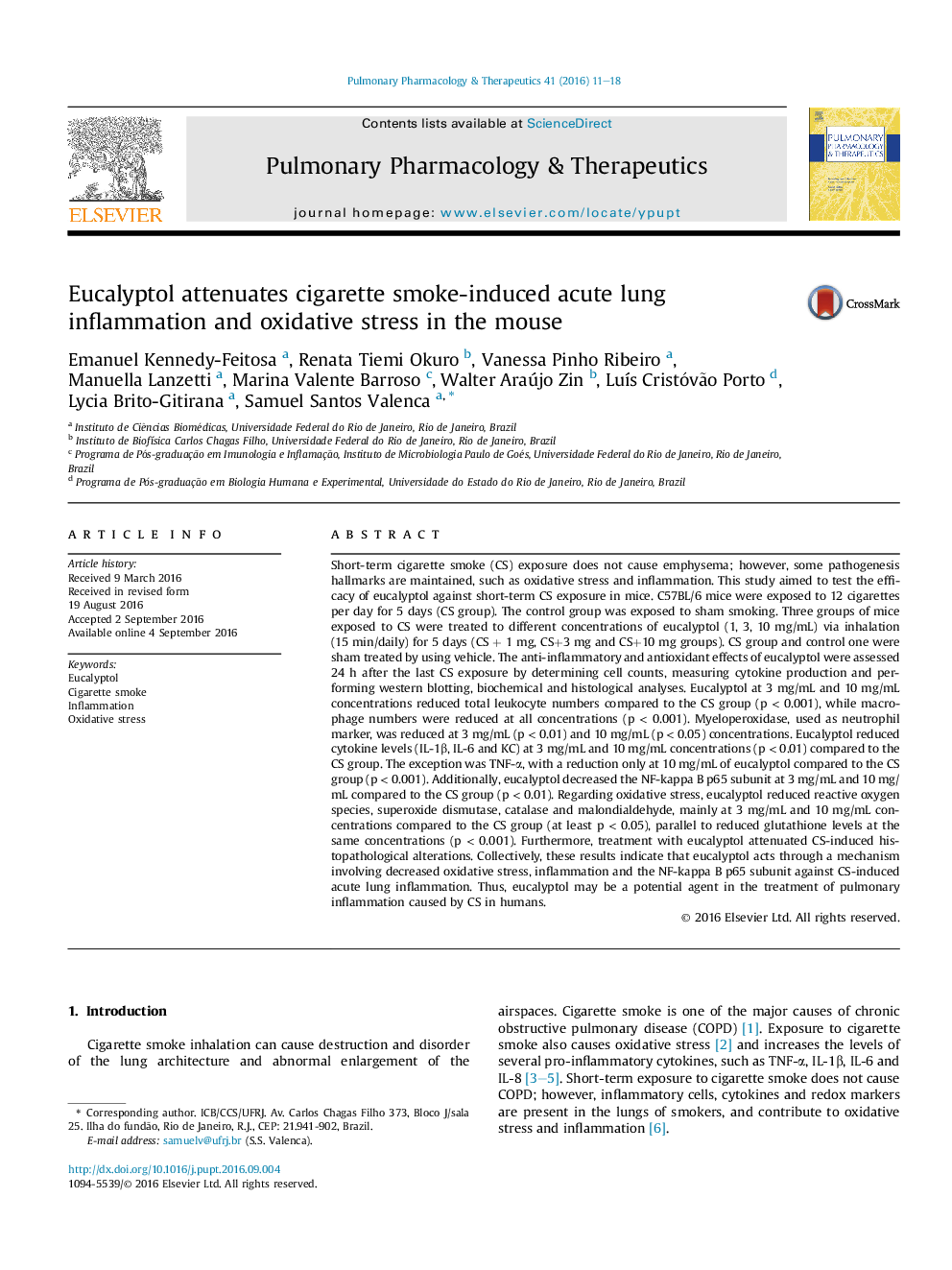| کد مقاله | کد نشریه | سال انتشار | مقاله انگلیسی | نسخه تمام متن |
|---|---|---|---|---|
| 2566894 | 1561082 | 2016 | 8 صفحه PDF | دانلود رایگان |
Short-term cigarette smoke (CS) exposure does not cause emphysema; however, some pathogenesis hallmarks are maintained, such as oxidative stress and inflammation. This study aimed to test the efficacy of eucalyptol against short-term CS exposure in mice. C57BL/6 mice were exposed to 12 cigarettes per day for 5 days (CS group). The control group was exposed to sham smoking. Three groups of mice exposed to CS were treated to different concentrations of eucalyptol (1, 3, 10 mg/mL) via inhalation (15 min/daily) for 5 days (CS + 1 mg, CS+3 mg and CS+10 mg groups). CS group and control one were sham treated by using vehicle. The anti-inflammatory and antioxidant effects of eucalyptol were assessed 24 h after the last CS exposure by determining cell counts, measuring cytokine production and performing western blotting, biochemical and histological analyses. Eucalyptol at 3 mg/mL and 10 mg/mL concentrations reduced total leukocyte numbers compared to the CS group (p < 0.001), while macrophage numbers were reduced at all concentrations (p < 0.001). Myeloperoxidase, used as neutrophil marker, was reduced at 3 mg/mL (p < 0.01) and 10 mg/mL (p < 0.05) concentrations. Eucalyptol reduced cytokine levels (IL-1β, IL-6 and KC) at 3 mg/mL and 10 mg/mL concentrations (p < 0.01) compared to the CS group. The exception was TNF-α, with a reduction only at 10 mg/mL of eucalyptol compared to the CS group (p < 0.001). Additionally, eucalyptol decreased the NF-kappa B p65 subunit at 3 mg/mL and 10 mg/mL compared to the CS group (p < 0.01). Regarding oxidative stress, eucalyptol reduced reactive oxygen species, superoxide dismutase, catalase and malondialdehyde, mainly at 3 mg/mL and 10 mg/mL concentrations compared to the CS group (at least p < 0.05), parallel to reduced glutathione levels at the same concentrations (p < 0.001). Furthermore, treatment with eucalyptol attenuated CS-induced histopathological alterations. Collectively, these results indicate that eucalyptol acts through a mechanism involving decreased oxidative stress, inflammation and the NF-kappa B p65 subunit against CS-induced acute lung inflammation. Thus, eucalyptol may be a potential agent in the treatment of pulmonary inflammation caused by CS in humans.
Journal: Pulmonary Pharmacology & Therapeutics - Volume 41, December 2016, Pages 11–18
